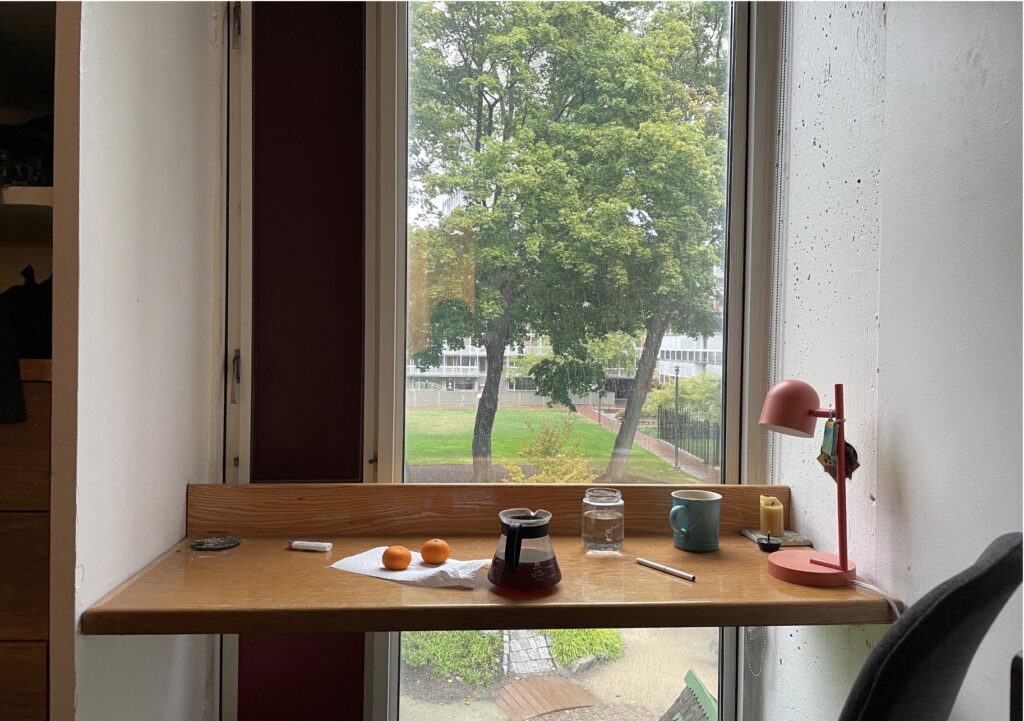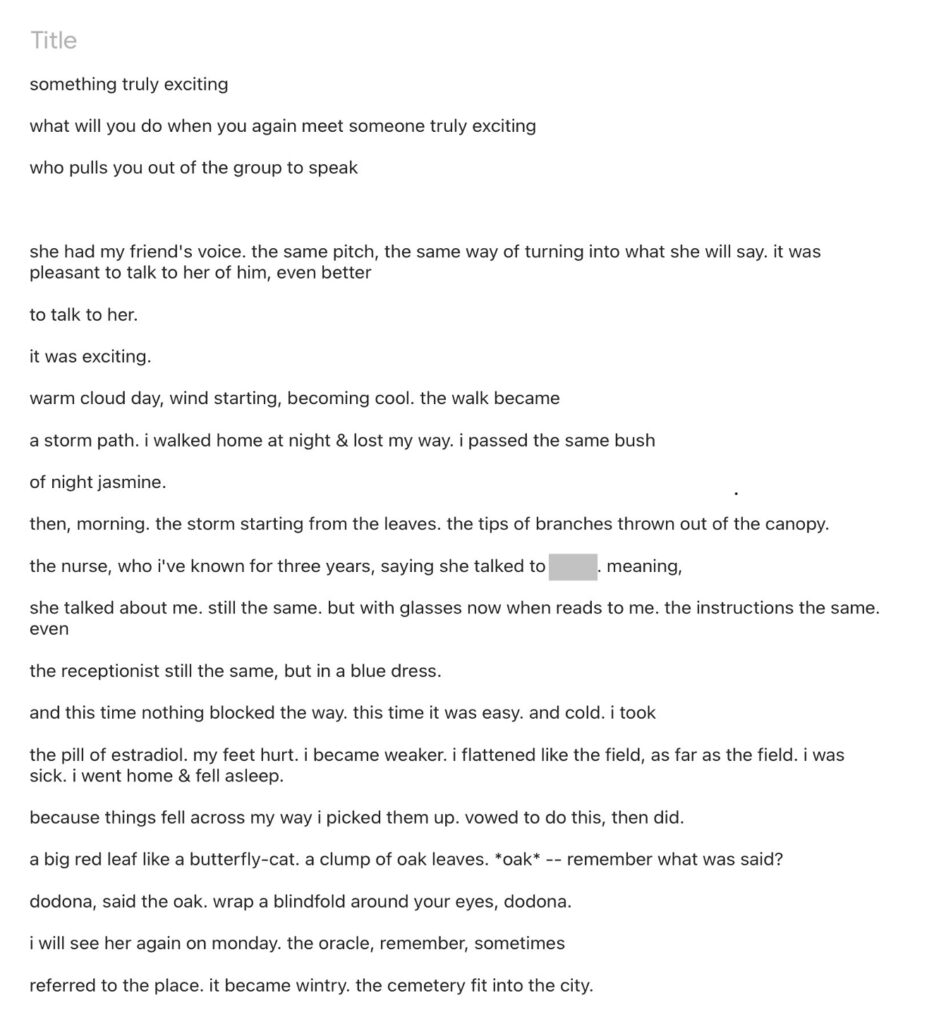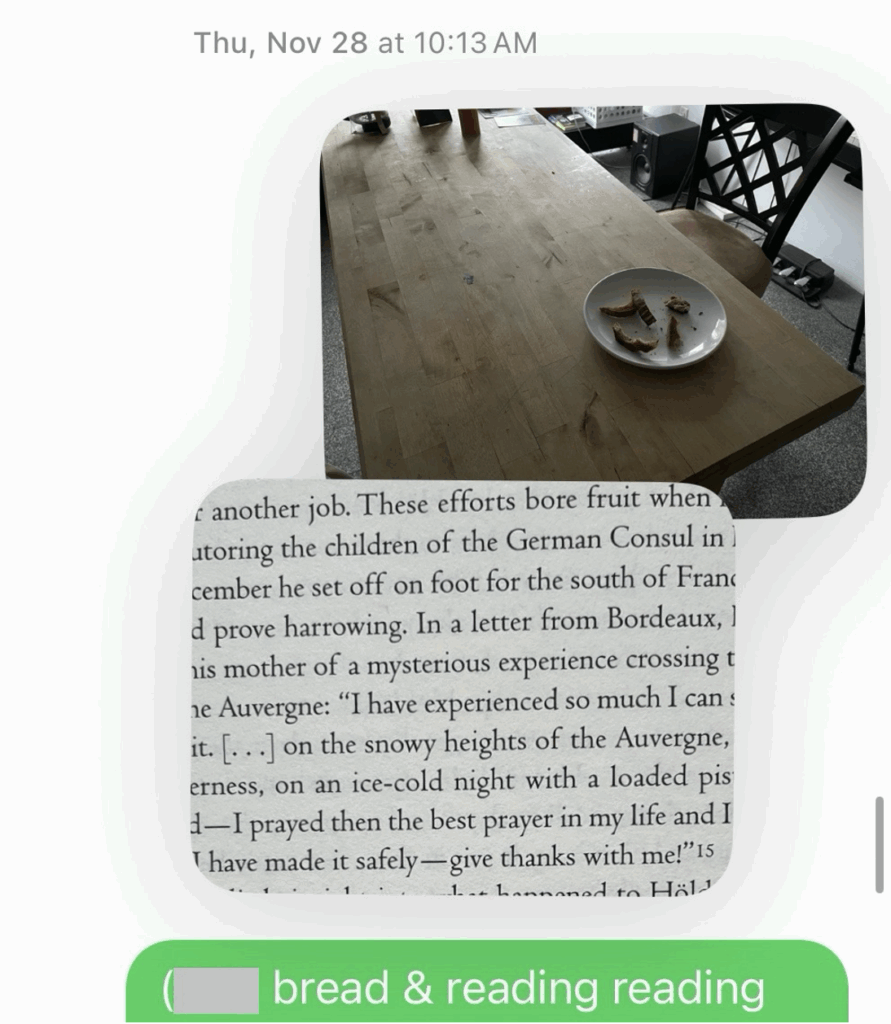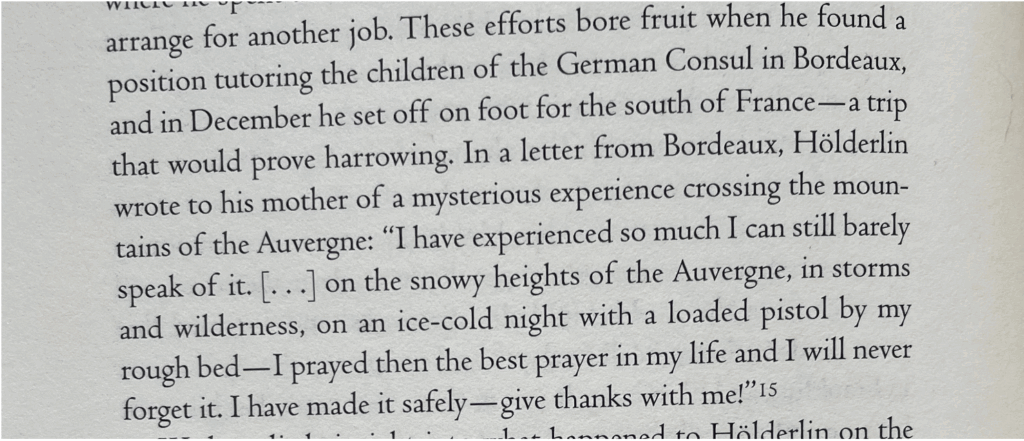
&# 8220; This was my desk. Listed below the home window is a children’s play ground. &# 8221;
For our series Making of a Poem, we’re asking poets and translators to explore the poems they &# 8217; ve released in our web pages. Yongyu Chen’s” Station shows up in our brand-new Summertime issue, no. 252
Just how did this rhyme start for you? Was it with an image, a concept, a phrase, or another thing?
I started this rhyme in late September in Cambridge, Massachusetts. I returned from a lengthy journey in Asia and was waking early as a result of the time distinction. I really felt excellent! I was writing a whole lot.
I composed the first draft after a series of experiences that felt like experiences already while I was inside them– beginning with conference, for the first time, a pal’s buddy and finishing with a stroll home on a gray day, after rainfall, considering the oak branches on the ground.
It felt like the sensation of intending to get the oak items– and observing it, then making myself do so– did something to the previous experiences. When I came home, I began writing the rhyme.

Exactly how about the 2nd draft? The 3rd? How many drafts were there, and what were the primary distinctions in between them?
There was one continually progressing draft, which ended up being much shorter. Over two months, I additionally began new poems, and a few split into this one.
I mosted likely to a claire rousay concert– it advised me of an Ichiko Aoba show I really did not most likely to. The title of among Aoba’s tunes, “Imperial Smoke Community,” came to be a scene with an ironsmith and plumes and a station …
I saw my buddy, and we sat on the stairs– there were no seats in the coffee shop. Individuals walked in between us, backwards and forwards. We read a poem by Celan with each other …
Hölderlin was the last, unexpected addition to the poem. I was learning about his go through the hills and the weapon under his pillow in the chilly …


While editing and enhancing, words totally free ended up being important. I was writing a lot, and liberty was what composing felt like to me. I was reading Alice Notley, which freed me to blog about extra points I discover. I believed that there was something photographic concerning this loosening, which to me implied creating a lot, just writing what takes place, and knowing a great deal of it won’t work which what works will function not as a result of strategy, generally, however via the assemblage of real points indexed in the poem.
The professional photographer Moyra Davey when composed that “accident is the lifeline of digital photography.” And “My ratio nowadays is probably one functional structure for every single five or ten rolls of film.” In the exact same text, she estimates Garry Winogrand–“That’s really what photography– still digital photography– has to do with. In the easiest sentence, I photograph to figure out what something will certainly look like photographed.”
When did you understand this rhyme was completed? Were you right regarding that? Is it finished, besides?
When I put Hölderlin in, the poem really felt finished because doing so really felt … like it damaged a regulation, or inner pattern. He is so historic, graspably real and concrete. That texture finished the poem for me.
The last set of edits were made with the Paris Testimonial verse editor Chicu Reddy’s pointers, which tightened the rhyme. Several of these edits altered or reversed significances–“No longer remembering” came to be “Keeping in mind.” Others removed items which I could not imagine eliminating, like the hand at the end, on the upper leg. I appreciated those edits because I couldn’t have actually made them, from within the logic of making the rhyme. They service the rhyme and let its meaning adjustment, if required. Or perhaps the meaning itself needed to be developed for the rhyme to work, much better. These edits were simple to accept due to the fact that they were sharp, tough, and not me.
Are there difficult and very easy rhymes?
Yes. This one was simple.
Yongyu Chen ‘s first book of poems, a winner of the 2023 Nightboat Poetry Prize, is forthcoming from Nightboat in spring 2026